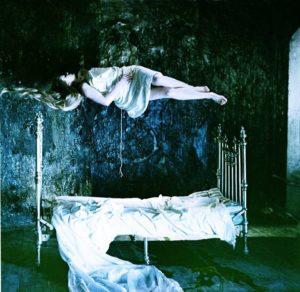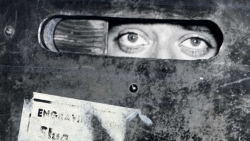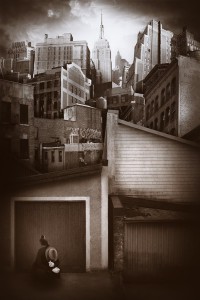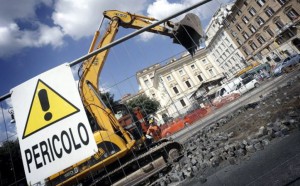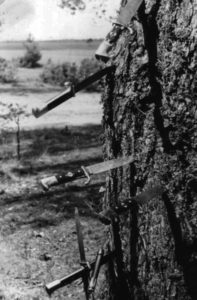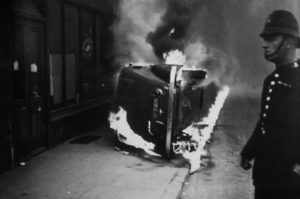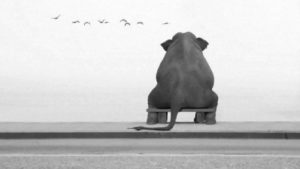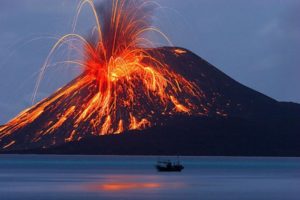Tag Archives: Diavolo In Corpo
Eight Hours Too Many?
|
by E. Kerr Work less to live more. What a beautiful slogan! I wonder if the one who coined it understood the unintended truth it contains, that work is the negation of life. “Eight hours of obligation is enough to exhaust a person’s energy. What he gives at work is his life, the better part of her strength. Even if the work has not degraded her, even if she has not felt himself overcome by boredom and fatigue, he leaves exhausted, diminished, with the imagination withered.” So a worker wrote several decades ago. Anyone who has worked even for just one day understands the meaning of these words. This is why the reduction of work hours has always been one of the primary demands of those who don’t commission the work, but who carry it out, and so bear its entire burden. |
The value of life – Il valore della vita (en/it)
Adonide
Continue reading The value of life – Il valore della vita (en/it)
La leggenda del Giubileo (2000)
Peter Linebaugh
The value of life (en/it)
Adonide
Per regolare i conti (it/fr)
Lope Vargas
Inviolabilità
Se si pensa che nella tradizione cristiana già il primo uomo apparso sulla terra disobbedisce al precetto divino ed incorre per questo nella punizione, e che a commettere il primo omicidio è un suo diretto discendente, è evidente come l’origine della giustizia si perda nella notte dei tempi, nascendo in risposta al problema posto da chi disturba l’ordinamento sociale ed economico.
Continue reading Per regolare i conti (it/fr)
En el centro del volcán
Dominique Misein
A pesar de que las múltiples catástrofes que se abaten sobre el ser humano la han puesto duramente a prueba, continúa resistiendo la convicción de que toda la Historia se ha desarrollado siguiendo un recorrido progresivo, si no regular, más o menos constante. La evolución no es una peregrina opinión, si es cierto, y cierto es, que salidos de las cavernas hemos llegado a navegar por el espacio. Hoy mejor que ayer, y peor que mañana. Pero, ¿cuál ha sido el punto de partida de esta carrera irrefrenable? Uno de los padres de la antropología cultural, L.H. Morgan, en su estudio sobre las líneas del progreso humano desde el estado salvaje hasta la civilización, divide la historia de la humanidad en tres etapas: el estado primitivo, el de la barbarie y el de la civilización. Morgan sostiene que este último habría nacido con la invención de un alfabeto fonético y con la difusión de la escritura: “En el principio era el verbo”, dice la Biblia. Ha sido el discurso lo que ha facilitado el camino del ser humano, permitiéndole conjeturar, argumentar, rebatir, discutir, acordar, concluir. Sin el discurso, la torre de Babel de la comunidad humana, no podría haber sido construida. En la fuerza persuasiva de la palabra se manifiesta la Razón, que se convierte así en la técnica de creación y de gobierno del mundo, haciendo que los seres humanos no se destruyan mutuamente sino que se pongan de acuerdo de la manera que consideren mejor. Y la Razón, como decía un sabio romano, es lo único por lo que “nos diferenciamos de los brutos”.
Continue reading En el centro del volcán
On Behalf of the Barbarians
If I don’t know the meaning of a language, I will be a barbarian to he who speaks it, and he who speaks to me will be a barbarian.Paul, First Corinthians
Civilization finishes when the barbarians flee.
Karl Krauss
IN THE HEART OF THE CITY
The history of a civilization is simultaneously the history of the transformation of its language. A society develops around its knowledge, which is articulated through its language, which becomes concrete in thinking itself. Humans act on the basis of their desires, they desire on the basis of their thoughts, they think on the basis of their language. The form and content of the latter are hence at the same time the condition and result of the whole of social relations. The dominant language of an epoch is therefore always the language of those who dominate socially in that period.
Il valore della vita (it/en)
Adonide
Al centro del vulcano (it/en/fr)
Dominique Miséin
Per quanto messa a dura prova dalle molteplici catastrofi che incombono sull’essere umano, resiste ben radicata nella sua testa la convinzione che tutta la Storia si sia svolta seguendo un percorso progressivo, se non proprio regolare, quanto meno costante. L’evoluzione non può essere una bizzarra opinione, se è vero, come è vero, che usciti dalle caverne siamo arrivati a navigare nello spazio. Oggi è meglio di ieri — e peggio di domani. Ma qual è stato il punto di partenza di questa irrefrenabile corsa? Uno dei padri dell’antropologia culturale, L. H. Morgan, nel suo studio sulle linee del progresso umano dallo stato selvaggio alla civiltà, divide la storia dell’umanità in tre stadi: lo stadio primitivo, lo stadio della barbarie e quello della civiltà. Morgan sostiene che quest’ultima ha avuto inizio con l’invenzione di un alfabeto fonetico e con la diffusione della scrittura.
Continue reading Al centro del vulcano (it/en/fr)
